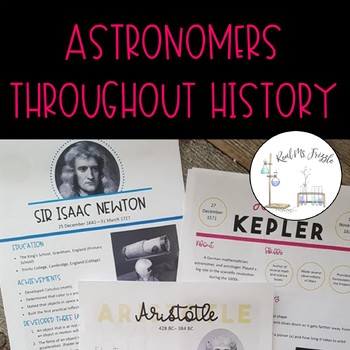Astronomers throughout History: Reading and Writing Assignment
- Zip
What educators are saying
Description
Get your students engaged in learning about six key astronomers (Aristotle, Ptolemy, Copernicus, Galileo, Kepler, and Newton) and their contributions to Astronomy.⭐
-------------------------------------------
Students will look over the "resumes" of all six scientists and choose the one they believe made the most important contributions. This is a great opportunity for students to demonstrate their ability to draw conclusions, formulate opinions, and write a persuasive "magazine article" about a historic scientist.
-------------------------------------------
This is a print and go lesson, with only a few minutes of prep time (printing and copying)!
-------------------------------------------
Love these resumes? Try my Geologist Resume Lesson!
--------------------- ----------------------
More Astronomy Lessons:
⭐ Redshift and the Expanding Universe JUMBO Notes
⭐ Stars and the Periodic Table--Doodle Reading
⭐ The Star Life Cycle
-------------------------------------------
Enjoy!
Real Ms. Frizzle





